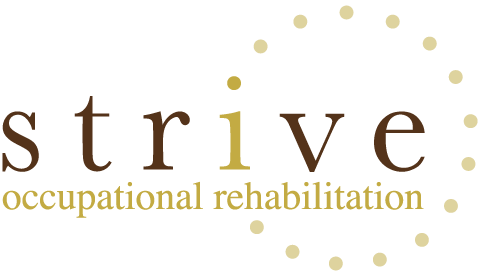By Laura Huygens, Rehabilitation Consultant – OT
As we near the one-year mark since our world changed in response to the COVID-19 pandemic, it is important to reflect on how we are coping one year on.
Thinking back to the first lockdown in March 2020, there was a lot of uncertainty, panic, and stress which ultimately left many of us quite concerned and scared for what the future would hold. However, through all the uncertainty, we collectively came together and changed the way we live to not only respond to changes imposed by our government, but to also cope with the lack of regular routine, face-to-face conversations, and the uncertainty of whether there would be toilet paper on the shelves at Coles or Woollies.
As we all know, the lockdown-phase of the COVID-19 pandemic was a very foreign concept to us all and took a toll on many people in more ways than one.
However, if there was something fortunate that we did get out of lockdown, it was that we had plenty of time to ourselves. According to the Household Impacts of COVID-19 Survey from January 2021, 86% of Australians reported to have participated in one or more activities to manage their physical health, and 67% used one or more strategies to manage their mental health since March 2020.
A concept that has been popping up more and more over the past few years is “self-care”. We know by now that we need to invest time and effort into maintaining our well-being; however, it was only until a worldwide pandemic occurred that we began to practice what has been preached to us repeatedly.
Despite Australians using most of their time in 2020 to invest in self-care practices, what happens now that we are going back to work with anticipated uncertainty for the future? Or for some Australians, finding new work or learning a new skill/trade to return to work?
Managing our time can be quite difficult without a global pandemic. When we add COVID-19 to the mix, we get constant changes in response to spikes in community transmission or last-minute lockdowns imposed by our government. When focusing on dealing with these changes, we can often forget to designate time to our self-care practices we adopted in 2020.
Nevertheless, there are some simple self-care tasks we can continue to do to ensure we are taking care of ourselves during ongoing difficult and uncertain times.
- CONNECT – something we all discovered to be essential for our wellbeing in 2020 is social connection. When we are dealing with stress, we can increase our likelihood that these stressors are coped with in a way to reduce adverse health consequences simply by connecting with others.
- JOURNAL – how can you deal with your life stressors when you haven’t taken the time to think about what they are and how they are affecting you? By using a journal, you can write down your feelings and emotions, which then can help in processing them, identifying them, and then planning how to best address them.
- DAILY GRATITUDE & MINDFULNESS – studies have shown that by pausing to reflect on the state of our body, mind, and emotions, we can shift from anger, resentment, or envy to more positive emotions. Start with small mindfulness exercises such as guided meditation or a body scan and end each day by thinking about 1-3 things you were grateful for that day (tip: writing them down can incorporate journaling into your day!).
- LESS SCREEN TIME – it can be tempting to flop on the couch after a long and stressful day. However, making a conscious effort to separate yourself from Netflix or social media can create more time for activities you enjoy or activities that promote positive wellbeing, such as yoga, connecting with nature, or meditation.
- SLEEP – stick to a regular schedule to ensure you are getting enough sleep each night. Little or poor sleep can unfortunately result in increased stress and anxiety which is the opposite of what you need when already stressed. Try some relaxation before bed such as progressive muscle relaxation or deep breathing to help prepare for sleep.
- SET SHORT-TERM GOALS – when we are stressed about the future, it can be helpful to focus on the ‘now’. Think: ‘what is announcing itself as a need to be fixed or adjusted?’. Assess what is causing you distress and create a small goal as a first step to addressing it. If you realise that you haven’t had time to do one of your favourite hobbies lately, set a goal to spend even 5 minutes on it after work and see how you can increase that to more time as you go.
- CLEAN/ORGANISE YOUR SPACE – majority of the time, we will lose focus on the state of our space when we are dealing with a difficult or stressful time as it is not an immediate priority. However, when our external world is a mess, our internal world can find it difficult to regulate itself and be calm and organised. Not only will organising your space help to decrease stress, but it will give an instant boost of reward for doing something that may have been subconsciously bothering you.
Of those who reported using one or more strategies to manage their mental health since March 2020, 36% reported organising their home, life or other things; 30% reported practicing thinking positively or setting achievable goals; and 31% reported doing more of the things they enjoy.
Just think: if these were the most common strategies used to maintain Australians’ self-care when the world was filled with uncertainty, maybe doing just one of them can help when future uncertainty and difficult times arise again.
References:

 Is this the key to happiness?
Is this the key to happiness?